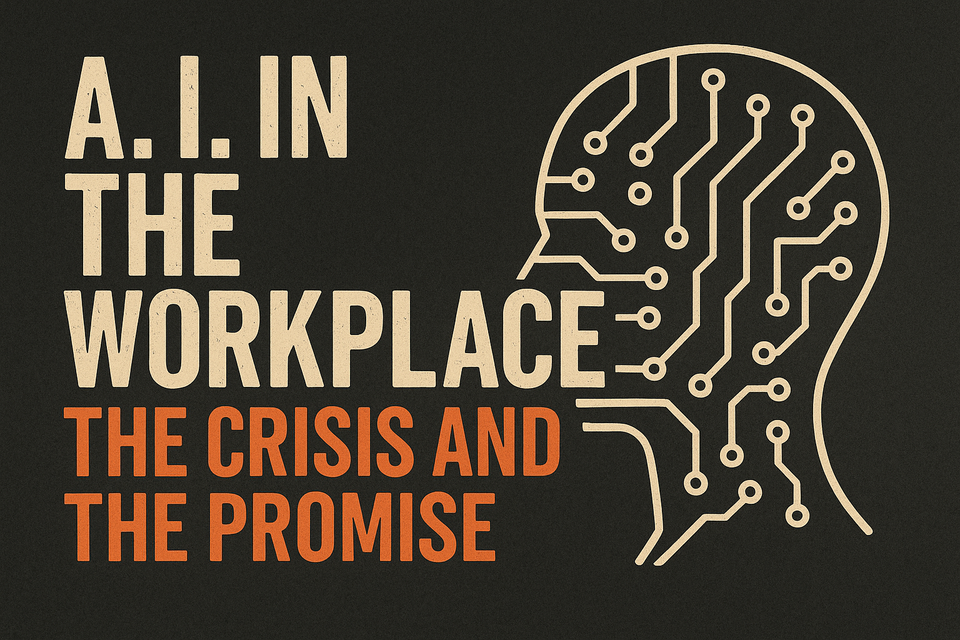A Local Response to AI

Preparing for the Coming Wave: A Local Response to AI Displacement
The machines are not coming. They’re already here.
Across industries and communities, artificial intelligence is rewriting the nature of work with a speed that staggers even its creators. This isn’t speculation. It’s already stripping meaning, security, and dignity from thousands of people, quietly, algorithmically, and without recourse.
And while national leaders posture and delay, while the politics of cruelty cuts the last threads of the social safety net, it is cities, counties, and local leaders who are left with the wreckage, and the responsibility.
This is a set of policy proposals for those who will not look away.
THE CRISIS:
- Asymmetrical Harm: The benefits of AI accrue at the top. The losses, jobs, stability, identity, fall on the already precarious.
- Safety Nets in Shreds: As federal supports vanish, displaced workers are left with nothing but debt, shame, and a chorus of "learn to code."
- Speed as Saboteur: Previous technological shifts gave communities time to adapt. AI gives no such grace.
POSSIBLE POLICY RESPONSES:
- Civic Equity Bonds: Fund community resilience through public-private partnerships. Use local capital to build retraining hubs, AI tool cooperatives, and youth creative programs. Let the city back its people.
- AI Displacement Tax: Require major AI adopters to contribute to a local impact fund. Support mental health, emergency income programs, and creative enterprise for those left behind.
- Neighborhood Tech Sanctuaries: Reclaim libraries, schools, and town halls as centers of re-skilling, innovation, and dignity. Equip them with both technology and human support.
- Right to Meaningful Work Charter: Enact a resolution affirming every resident’s right to contribute, create, and learn in a rapidly changing world. Symbolic, yes, but also strategic.
- Rapid Response Displacement Teams: Pre-authorize a citywide task force to intervene when companies automate large swaths of labor. Offer immediate triage: counseling, credit access, skill development, and placement.
THE PROMISE:
- We do not need permission from the federal government to care for our people.
- We do not need billionaires’ blessing to act with compassion.
- We do not need perfect foresight to build something better.
We only need the will to stand beside one another when the system turns away.
Let this be the place where the fall was softened, where the future was faced together. Let our city be the proof that humanity does not have to be sacrificed for progress.
Much of this is perhaps idealistic and could be extremely difficult to implement but it can be another statement of the renewal of the party as a party of the people and not just the intellectual elites as it has come to be identified.





Member discussion